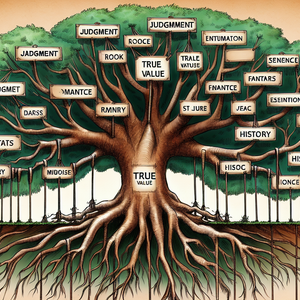Beyond the Paycheck: The Non-Monetary Benefits of Being a Respiratory Therapist

Job satisfaction is a fundamental factor influencing career choice and longevity. For respiratory therapists, the satisfaction derived from their work is multifaceted, stemming from both the daily tasks they perform and the profound impact they have on patients' lives. According to a survey by the American Association for Respiratory Care, a high percentage of RTs report significant levels of job satisfaction. This satisfaction is rooted in the critical role RTs play in diagnosing and treating patients with respiratory conditions, which can often be life-saving. Consider the case of Sarah, a respiratory therapist working in a bustling urban hospital. One day, she encountered a patient who arrived in acute respiratory distress. Utilizing her skills and expertise, Sarah was able to stabilize the patient, who later expressed deep gratitude for her care. Experiences like these create a sense of purpose and fulfillment that transcends financial compensation. The knowledge that their work directly improves patients' quality of life is a powerful motivator for many RTs, making job satisfaction one of the most rewarding aspects of their careers.
Emotional Fulfillment: The Heart of the Profession
Emotional fulfillment is another compelling non-monetary benefit of being a respiratory therapist. RTs often form meaningful connections with their patients, many of whom are vulnerable and in need of support. The ability to provide comfort and reassurance during difficult times fosters a sense of belonging and community for both therapists and patients alike. The nature of respiratory therapy allows RTs to witness the tangible results of their efforts. For instance, seeing a patient transition from struggling to breathe to walking out of the hospital on their own is not only immensely rewarding but also serves as a powerful reminder of the significance of their work. This emotional engagement can lead to a profound sense of pride and loyalty to the profession, encouraging individuals to stay in the field even when faced with challenges.
Work-Life Balance: A Sustainable Career Choice
Work-life balance is a crucial aspect that attracts many individuals to the field of respiratory therapy. Unlike some healthcare professions that demand long, irregular hours, many RTs enjoy a more structured work schedule. This predictability allows for better personal time management, enabling therapists to pursue hobbies, spend quality time with family, and recharge outside of work. Moreover, many respiratory therapy positions offer flexibility in terms of shift work. Some facilities provide options for part-time work, per diem shifts, or even remote opportunities in telehealth settings. This flexibility significantly enhances an RT’s quality of life, facilitating the navigation of personal commitments alongside professional responsibilities.
Professional Growth and Development
While financial compensation remains important, many respiratory therapists find that opportunities for professional growth and development significantly enhance their career satisfaction. The field is continuously evolving with advancements in technology and treatment methodologies. RTs who engage in ongoing education, specialization, and leadership training can enhance their skills and remain at the forefront of their profession. For example, respiratory therapists may pursue certifications in specialized areas such as pulmonary rehabilitation, sleep disorders, or neonatal/pediatric care. These educational opportunities not only broaden their knowledge base but also boost their confidence and credibility in the field. Such professional development often leads to increased responsibilities and the potential for career advancement, further enriching the RT's experience beyond mere salary considerations.
In conclusion, while financial compensation is undeniably a crucial aspect of any career, the non-monetary benefits of being a respiratory therapist are equally significant. The job satisfaction derived from making a difference in patients' lives, the emotional fulfillment from building meaningful connections, the work-life balance that allows for personal time, and the opportunities for professional growth all contribute to the holistic appeal of this profession. For those considering a career in respiratory therapy, understanding these non-financial rewards offers a more comprehensive picture of what it means to be an RT, encouraging aspiring professionals to embark on a fulfilling and impactful journey. As the demand for respiratory therapists continues to rise, the intrinsic rewards of this vital profession will remain a driving force for many who choose to make a difference in the lives of others.
Pediatric Respiratory Therapist
Children's hospitals, pediatric care centers, and specialized clinics
Responsibilities
Assess and treat respiratory conditions in infants and children, including those with congenital or acquired respiratory disorders.
Collaborate with pediatricians and other healthcare professionals to create individualized treatment plans.
Educate patients and families on respiratory care techniques and the use of medical equipment.
Required Skills
Strong knowledge of pediatric respiratory pathophysiology and treatment modalities.
Experience with specialized pediatric equipment, such as nebulizers and oscillatory devices.
Certification in Pediatric Advanced Life Support (PALS) is often required.
Pulmonary Rehabilitation Specialist
Rehabilitation centers, hospitals with pulmonary programs, and outpatient clinics
Responsibilities
Design and implement rehabilitation programs for patients with chronic respiratory diseases, such as COPD and asthma.
Conduct assessments to evaluate patients' physical capabilities and develop personalized exercise plans.
Monitor patients' progress and modify treatment plans as necessary for optimal outcomes.
Required Skills
Expertise in exercise physiology and respiratory therapy techniques.
Strong interpersonal skills for motivating and educating patients.
Certification in pulmonary rehabilitation or related fields is advantageous.
Sleep Disorder Specialist (Respiratory Therapy)
Sleep clinics, hospitals, and specialty sleep disorder centers
Responsibilities
Conduct sleep studies (polysomnography) to diagnose sleep disorders such as sleep apnea.
Analyze and interpret sleep study data to develop treatment plans, including CPAP therapy.
Provide education to patients on the importance of sleep hygiene and adherence to prescribed therapies.
Required Skills
In-depth understanding of sleep physiology and common sleep disorders.
Proficiency in the use of polysomnography equipment and software.
Certification from the Board of Registered Polysomnographic Technologists (BRPT) is preferred.
Clinical Respiratory Educator
Hospitals, educational institutions, and healthcare training organizations
Responsibilities
Develop and deliver training programs for healthcare staff on respiratory therapy best practices and equipment use.
Provide patient education on respiratory health, disease management, and home care techniques.
Stay updated on the latest research and advancements in respiratory therapy to ensure evidence-based practices.
Required Skills
Strong communication and presentation skills to effectively educate diverse audiences.
Experience in clinical practice and a solid understanding of respiratory care protocols.
Certification as a respiratory therapist (CRT or RRT) along with teaching credentials, if applicable.
Respiratory Therapy Manager
Hospitals, healthcare systems, and specialty clinics
Responsibilities
Oversee daily operations of the respiratory therapy department, ensuring compliance with regulations and quality standards.
Manage staff schedules, performance evaluations, and continuing education opportunities for therapists.
Collaborate with other department heads to enhance patient care and departmental efficiency.
Required Skills
Strong leadership and management skills with experience in healthcare settings.
Knowledge of budgeting, resource allocation, and staff development.
Advanced certifications in respiratory therapy management may be required.


